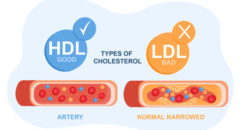
Our senses can help us out when danger is near. Take for example when we hear someone call for help or smell something that is on fire. But did you know our senses can also help us identify a stroke? Here’s how to use your senses to spot a stroke FAST.
Sight
Vision might be impaired during a stroke. The brain controls eye movement, which may produce double vision. As cameras, the eyes normally move simultaneously. Now, one eye sees one thing, and the other sees another, making you see double. A stroke may cause a painless loss of vision in one eye due to insufficient blood flow to the rear of the eye.
So if someone says they lost vision in one eye for a while that got better, there would be worry that their carotid artery is blocked by plaque or insufficient blood flow. They say it’s painless but feels like a shade falling over their eye. After a few minutes, the shadow gently rises, and they can see clearly.
When patients suffer a stroke, they can lose their peripheral vision. It may return or stay. That should be tested.
RELATED: 5 Signs You’ve Already Had A Stroke and Didn’t Know It
Sound
Stroke seldom causes hearing loss. We sometimes meet patients with ringing in their ears and imbalance after a stroke, but severe hearing loss is rare. Speech involves language and articulation.
Am I comprehending? Are my words available? A stroke victim may have aphasia. That suggests they’re having trouble finding words, comprehending your words, or both.
The brain is misinterpreting their native language, so it sounds strange. Patients or friends will comment, this person’s confused. Their condition is unknown. They’re not confused—they simply don’t grasp what’s being said or can’t explain themselves.
That seems like uncertainty, but it’s a stroke victim suffering linguistic issues. The brain functions uniquely. The left brain controls the right side, right brain controls the left side.
For instance, a simple line like “the cat raced up the tree” may sound different or be misunderstood. Sometimes it’s hard to








